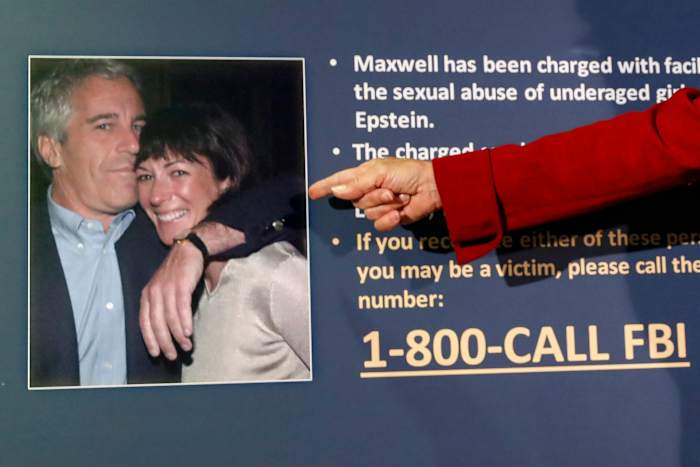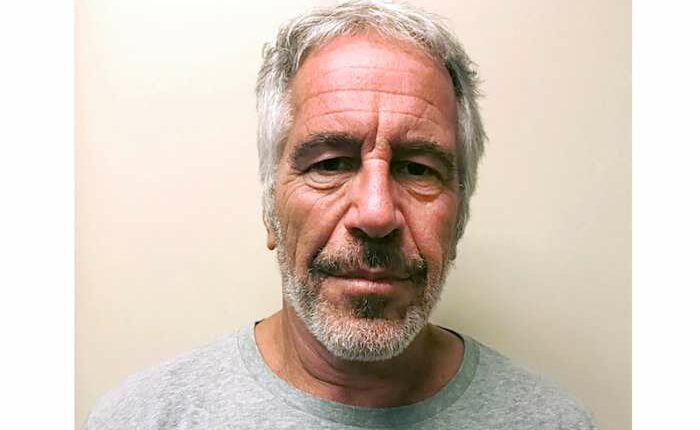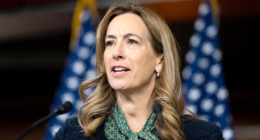Share this @internewscast.com

NEW YORK – The impending release of files by the Justice Department on notorious sex offender Jeffrey Epstein and his close associate Ghislaine Maxwell is drawing increased attention, fueled by a courtroom skirmish over sealed documents from Maxwell’s criminal proceedings. This legal tussle is shedding light on what these files may contain.
On Wednesday, government attorneys approached a judge with a request to unseal a comprehensive array of records from Maxwell’s case. These include search warrants, financial documents, notes from survivor interviews, data from electronic devices, and materials from previous investigations into Epstein’s activities in Florida.
The Justice Department aims to lift secrecy orders on these documents as it complies with a newly enacted law that mandates the public disclosure of investigative materials related to Epstein and Maxwell.
This legislative move, known as the Epstein Files Transparency Act, was recently passed by Congress and signed into law by President Donald Trump.
The Justice Department’s submission occurred shortly after U.S. District Judge Paul A. Engelmayer in New York directed the government to clarify which documents from Maxwell’s trial will be made available to the public.
In its efforts, the government is engaging in consultations with survivors and their legal representatives to ensure sensitive information is handled delicately. They plan to redact the records carefully to safeguard survivors’ identities and prevent the release of inappropriate images.
“In summary, the Government is in the process of identifying potentially responsive materials” that are required to be disclosed under the law, “categorizing them and processing them for review,” the department said.
The four-page filing bears the names of the U.S. attorney in Manhattan, Jay Clayton, along with Attorney General Pam Bondi and Deputy Attorney General Todd Blanche.
Also Wednesday, a judge weighing a similar request for materials from Epstein’s 2019 sex trafficking case gave the department until Monday 1 to provide detailed descriptions the records it wants made public. U.S. District Judge Richard M. Berman said he will review the material in private before deciding.
In August, Berman and Engelmayer denied the department’s requests to unseal grand jury transcripts and other material from Epstein and Maxwell’s cases, ruling that such disclosures are rarely, if ever, allowed.
The department asked the judges this week to reconsider, arguing in court filings that the new law requires the government to “publish the grand jury and discovery materials” from the cases. The law requires the release of Epstein-related files in a searchable format by Dec. 19.
Epstein was a millionaire money manager known for socializing with celebrities, politicians and other powerful men. He killed himself in jail a month after his 2019 arrest. Maxwell was convicted in 2021 of sex trafficking for luring teenage girls to be sexually abused by Epstein. She is serving a 20-year prison sentence.
In initial filings Monday, the Justice Department characterized the material it wants unsealed in broad terms, describing it as “grand jury transcripts and exhibits.” Engelmayer ordered the government to file a letter describing the materials “in sufficient detail to meaningfully inform victims” what it plans to make public.
Engelmayer did not preside over Maxwell’s trial, but was assigned to the case after the trial judge, Alison J. Nathan, was elevated to the 2nd U.S. Circuit Court of Appeals.
Tens of thousands of pages of records pertaining to Epstein and Maxwell have already been released over the years, including through civil lawsuits, public disclosures and Freedom of Information Act requests.
In its filing Wednesday, the Justice Department listed 18 categories of material that it is seeking to release from Maxwell’s case, including reports, photographs, videos and other materials from police in Palm Beach, Florida, and the U.S. attorney’s office there, both of which investigated Epstein in the mid-2000s.
Last year, a Florida judge ordered the release of about 150 pages of transcripts from a state grand jury that investigated Epstein in 2006. Last week, citing the new law, the Justice Department moved to unseal transcripts from a federal grand jury that also investigated Epstein.
That investigation ended in 2008 with a then-secret arrangement that allowed Epstein to avoid federal charges by pleading guilty to a state prostitution charge. He served 13 months in a jail work-release program. The request to unseal the transcripts is pending.
Copyright 2025 The Associated Press. All rights reserved. This material may not be published, broadcast, rewritten or redistributed without permission.











